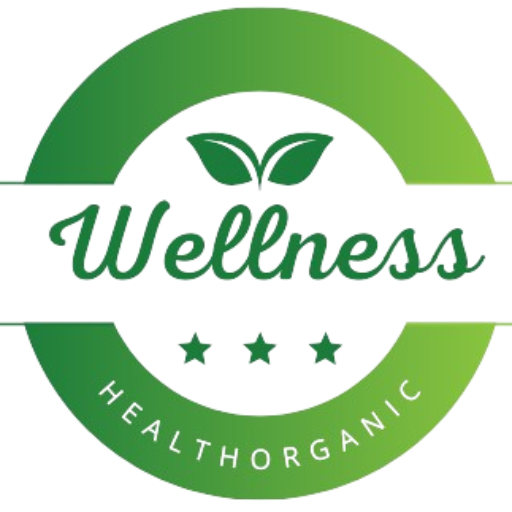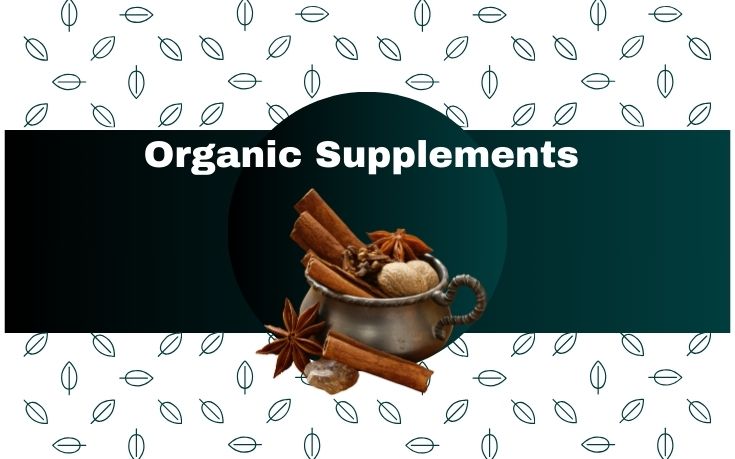Hello, health seekers! If you are like many others, you may have questioned at one time or another the organic supplements you take: are they effective? Better still, can organic make a difference at all?
As the world heads in a more natural and sustainable direction for living, the market for organic supplements is becoming increasingly popular, But truly, can they be more effective than their conventional counterparts?
Let’s unpack the science, benefits, and potential pitfalls of organic supplements to determine whether they deserve a place in our wellness regimen.
Organic Supplements
Over the past decades, the crusade for organic products has grown rapidly. From organic vegetables and fruits to skincare products and cleaning solutions, customers prefer organics for their supposedly healthier content and environmentally friendly origin. This trend has been extended into the food supplement industry with the recent appearance of organic vitamins, organic minerals, and herbal extracts on the market.
Organic supplements are manufactured without the use of synthetic pesticides, fertilizers, or other genetically modified organisms. This also inhibits them from using any artificial additives, preservatives, and colorings. This would help reassure health-conscious consumers seeking to minimize their exposure to possibly hazardous chemicals.
The Purity Advantage
One of the primary arguments in favor of organic supplements is their purity. Conventional supplements might contain traces of pesticides, herbicides, and other chemicals in use in agriculture. These residues may build up in the organism over time and become hazardous to health. Methods of farming organically support both the health of the soil and biodiversity, resulting in cleaner and more nutrient-dense crops.
This high-quality raw material finds its way into making supplements free from harmful contaminants. This purity can be especially paramount when one is dealing with chemical sensitivities or allergies.
Nutrient Density and Bioavailability
Another important factor is nutrient density. Organic farming tends to increase nutrient density in crops. Healthier soil makes for healthier plants, and the healthier the plants, the more vitamins, minerals, and antioxidants they will deliver. The result is all that nutrient richness being passed into organic supplements, so which makes them more functional. Another critical factor is bioavailability or the extent to which nutrients can become available for absorption and be utilized by the body. Many sources point to the higher bioavailability of organic supplements, perhaps because they lack synthetic additives and benefit from naturally occurring co-factors that aid in nutrient absorption.
Role of Whole Food Supplements
Supplements of whole foods, usually organically produced, ensure concentrated fruits, vegetables, and herbs for intake that is broad-spectrum in nutrients. This is contrary to synthetic supplements, which isolate specific vitamins or minerals. It is whole food supplements that present a holistic approach to nutrition because they contain a complex matrix of nutrients, enzymes, and co-factors that synergistically work for better absorption and action. For example, an organic whole-food multivitamin could include extracts of organic kale, spinach, blueberries, and turmeric. In this combination, one finds not only the essential vitamins and minerals but also phytonutrients and antioxidants that contribute to general health.
Environmental and Ethical Considerations
You can also choose organic supplements because they would help in promoting conventional and sustainable methods of farming. Organic farming increases the level of biodiversity, saves water, and minimizes erosion. It avoids synthetic chemicals that harm wildlife and contaminate waterways.
Moreover, most organic supplement companies are strongly dedicated to fair trade and the promotion of small farmers. When you choose organic, you are actively supporting a much more sustainable and fair food system. This mirrors another raising demand of consumers for products that are good both for human beings and the environment.
Possible Concerns and Things to Consider
Here are a few possible pitfalls despite the benefits. Generally, the organic supplements are more expensive than the regular ones. This price increase is generally attributed to labour intensiveness in the case of organic farming and rigorously following certification processes. However, many consumers feel such benefits completely justify the extra cost.
You should also be very careful in choosing supplements
Do you know how the market is muddled up? Every product doesn’t meet high standards of quality and efficiency. Look for highly professional and reputable brands that show full transparency about sourcing, production methods, and third-party testing.
Real-Life Success Stories
Let’s hear from some users who have benefited from switching to organic supplements. Take Sarah, for instance: This busy mom struggled with low energy and fatigue. She switched to an organic multivitamin and added organic superfood powders. She noticed her increased energy levels and, hence, her overall well-being had boosted significantly.
Then there’s Tom, the athlete committed to performance and recovery. He tells you how organic protein powders and herbal supplements have helped him in his recovery and given extra kicks at the gym. Clearly, from these stories, every organic supplement is very beneficial to various aspects of one’s health.
Science Behind the Claims
Research in the scientific fields is now buttressing the potency of organic supplements. Several studies indicated that organic crops contain more concentration for some nutrients than those crops that are grown conventionally. For example, a study published in the British Journal of Nutrition discovered that organically grown crops had higher concentration levels for substances like antioxidants, elements that fight oxidative stress and promote good health.
Other research has also highlighted the benefits of whole-food supplements. A study in the Journal of Alternative and Complementary Medicine noted improvements in several markers of health, such as energy and immune function, in participants receiving a whole-food multivitamin.
Making the Shift
Thinking of making a switch to organic supplements? Here are some tips that can help get you started. First, do your homework. Seek out transparent, certified organic brands, and when you read the labels, be meticulous about what it is you’re getting for the money—high-quality, no-nonsense ingredients.
Build from the ground up with a good organic multivitamin. From that foundation, you can add on other essential nutritional supplements as you see fit—for gut health, organic probiotics or for stress support, organic adaptogens.
Final Words
So, might organic supplements be more potent? Although further research into these supplements may bring an absolute understanding of additional benefits, so far the evidence looks pretty good.
What Organic Supplements Do Offer is purity and nutrient density that can enhance their efficacy. They support sustainable and ethical farming practices for a healthy planet.
Switching to organics could be a very strong step toward health and well-being. With good, nutrient-rich products, you can nourish your body while contributing to a more sustainable food system. So why not give it a shot? Your health, and the planet too, will thank you. Happy and healthy living!





